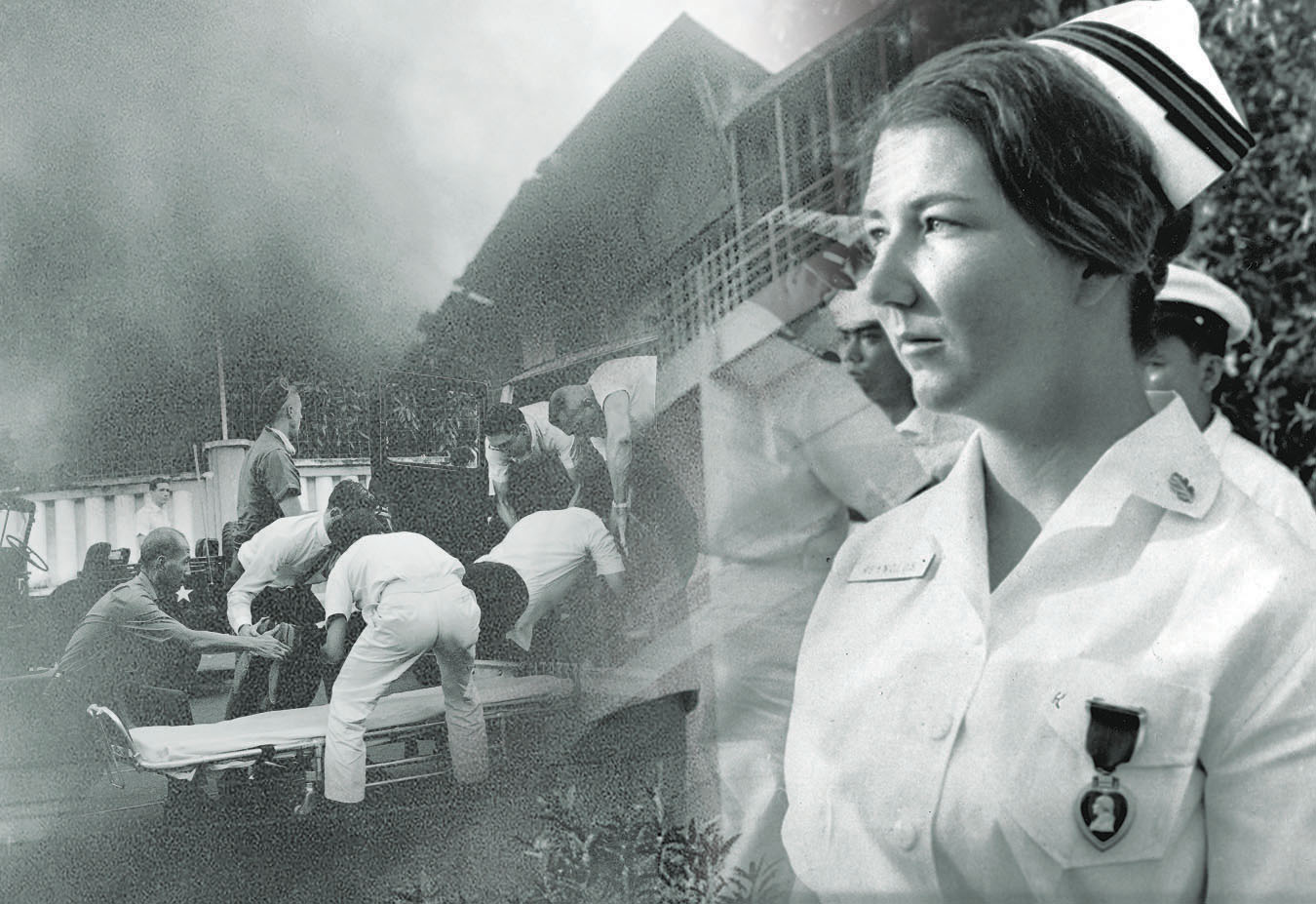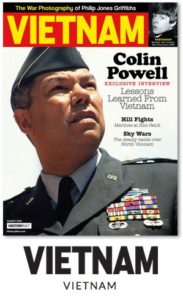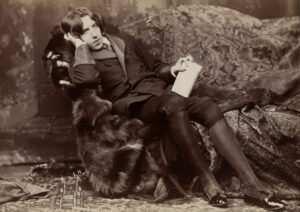Ann Darby Reynolds of Dover, New Hampshire, graduated from St. Anselm College in Manchester with a degree in nursing in 1961 and was commissioned as an ensign in the Navy Nurse Corps in 1962. She served at Pensacola, Florida, and Camp Lejeune, North Carolina, before receiving orders for Navy Station Hospital Saigon on Christmas Eve 1963.
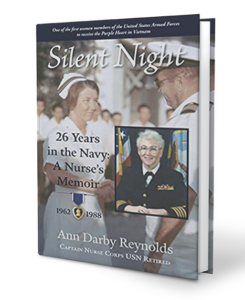
The following Christmas Eve would be the most memorable of her Navy career—as she relates in her memoir Silent Night: 26 Years in the Navy: A Nurse’s Memoir. Reynolds arrived in Vietnam in March 1964 as a lieutenant junior grade. At age 25, she was the youngest of seven Navy nurses at the hospital. The hospital was assigned another nurse in December 1964. She lived with Reynolds and three other nurses at the Brinks Hotel, a bachelor officers’ quarters for the U.S. military.
The holidays were approaching, and the word was out that something big was going to happen. All the newspapers, flyers and Armed Forces Radio sent the same message: “Be observant and check all stray packages.” No one knew when or where it might happen. Hospital staff had to be prepared. Everyone was getting anxious the closer it came to Christmas.
A few days before Christmas, some of the men found a Christmas tree for the nurses. It looked rather pathetic, so we found a few decorations to add, including a letter that arrived. Lt. Ruth Ann Mason had been selected for lieutenant commander, a promotion. I also received a letter from Washington. I had been selected for full lieutenant, and my letter went on the tree.
The five of us decided to have a Christmas party on the evening of Dec. 23 and invite some of the men. However, one nurse had to work that night.
I was scheduled to work Christmas Eve day and the operating room watch from 4 p.m. until 8 a.m. Christmas Day. I left the party and went to bed at 9 p.m. The next morning I reported to work, and we had a busy day. Around 4 p.m. I went back to the OR. If there were any new cases I would have to remain there. The Navy hospital corpsmen were cleaning up from the day’s surgeries and restocking the shelves. I thought that since it was Christmas Eve I would stay and help them; then everyone could leave and maybe have dinner.
Tensions were high. Would something happen tonight? Tomorrow? When would we be back at the hospital to care for the casualties? The corpsmen put bets on it. For 25 cents, some of them picked a time. They asked if I would like to put 25 cents in the pool. No. They asked one of the doctors who went by. No. Only a few made bets. Despite the anxiety, everyone was in good spirits.
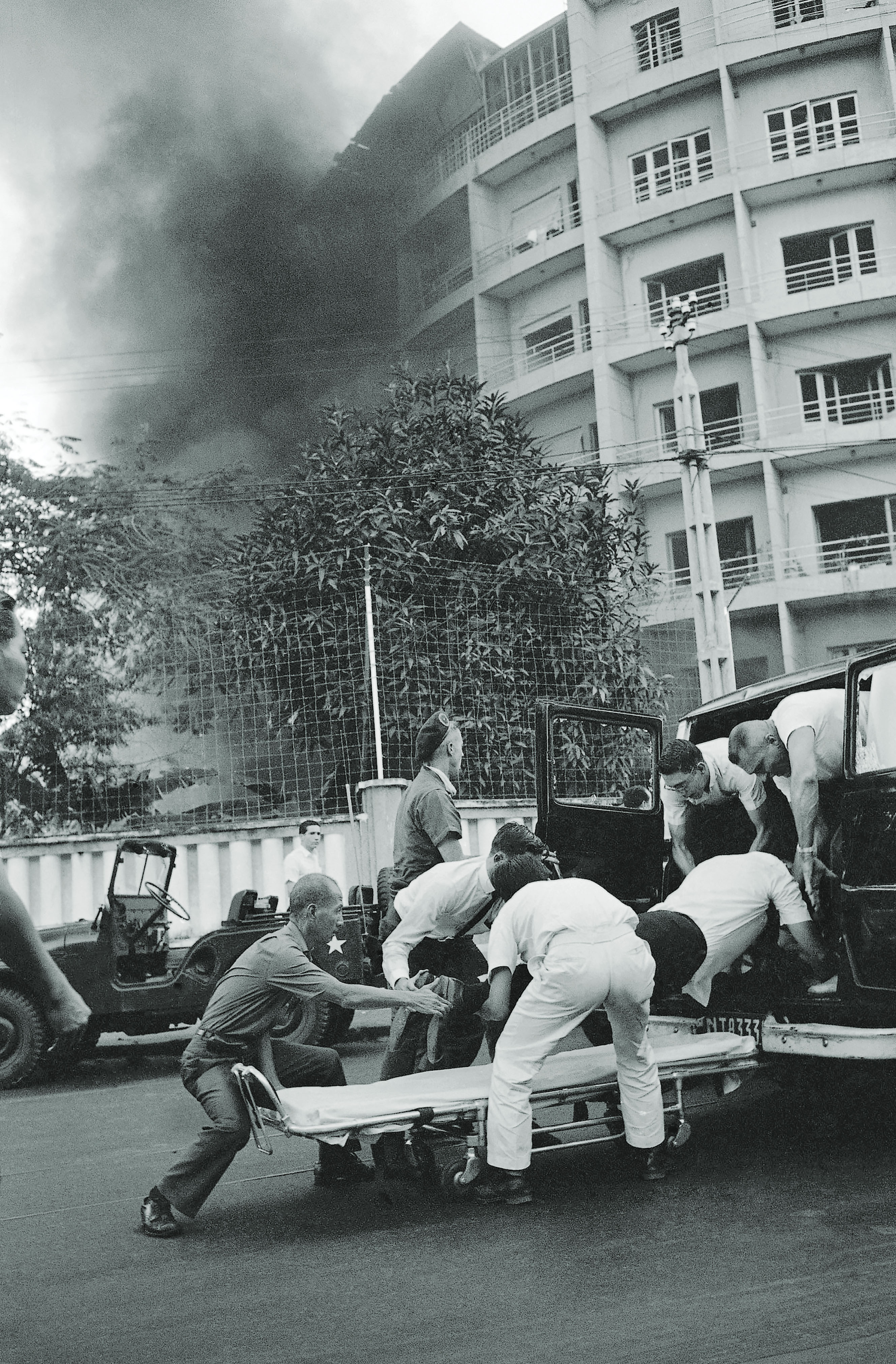
Shortly after 5 p.m., I had a ride back to the Brink. I looked over to my left at a smaller hotel across the way and noticed several women in bright clothes. They were all laughing. I asked the guard what was going on. He said they were part of Bob Hope’s USO tour. Hope had been in a show that afternoon at Bien Hoa Air Base, 10 miles away, and was scheduled to appear in a bigger USO Show on Christmas Day, at Tan Son Nhut Airport in Saigon.
I went into my quarters. Mason and Mama-san, our maid, were the only two there. Lt. Eileen Walsh was at work. Lt. Frances Crumpton was shopping. I rushed in and changed clothes. All the nurses had chipped in for a special Christmas present for Mama-san. We wanted to give it to her before she left for home on Christmas Eve. She left our quarters carrying the wrapped gift with a big smile.
About five minutes later she was back, crying, because the guards would not let her go through security with her big package. They were taking extra precautions to check everyone leaving the building. Either Mason or I would need to go down and make sure she got out with her present.
I asked Mason to go because I was on call for the OR and needed to be near the phone. After they left, I had a bad feeling. I went over to our French door so I could look down at the security line and watch for Mama-san to make sure she left safely.
It was a long wait and I was tired, so I pressed my face and forehead against the cool glass on the door, looking down to the ground floor. Suddenly, an explosion went off! The noise was deafening. The glass of the door shattered on me. The door blew in and threw me into the middle of the room. I don’t remember how long I was there. I later discovered I had a concussion.
One side of the French door had blown off and the other side was hanging on its hinges. I just sat there and looked at it. I was covered with glass, but my first thought was that the Brink had been hit. A bomb? I needed to get to the hospital to help. There would be wounded. I got up and started looking for my nurse’s shoes. Big pieces of glass fell off me.
I never thought of myself—just my shoes. I needed them. I had spent too many nights in the OR in sandals or sneakers on a cement floor only to discover the next day that I could hardly walk.
Two men came in and asked where the others were. I told them that I was alone. Mason and Crumpton were outside. Lt. Barbara Wooster, the new nurse, was a few floors above, and Walsh was on duty. The men said I needed to leave right away because the building was on fire.
“I can’t leave until I have my shoes,” I said. I was a little dazed. They found my shoes, put them on my feet and then each took me by the arm. I think the men also took a few pieces of glass off the top of my head. I found small pieces of glass in my hair for weeks. I would feel something sharp and pull out a small piece. I couldn’t get my hair washed for some time. I also had many small cuts on my fingers.
We came out of the front French door into the hall. Both sides of that door were hanging from the hinges. The elevator across from the door was not working. We heard lots of loud voices coming closer. We went down the flight of stairs, and as we came around a little bend, I smelled smoke and then saw the fire.
When I looked straight ahead outside toward the wall, I saw Mason and Crumpton. I told the two men I was OK and pointed out the other nurses. The men left and I made it to the wall. I was relieved to discover that Mama-san had gone through security.
The courtyard was filling up with the men coming out of the building, some being carried, others assisted. Some were in their underwear. The injured were put on the ground. More explosions were going off, and the fire was spreading.
I looked for Wooster and noticed her walking out of the building. It was a relief to know that all four nurses were outside. My attention turned to the men on the ground. I went over to one man and got down on my knees to check him.
A soldier came over, dropped to my level, and said, “There are many men outside the wall ready to help. What can they do? There are jeeps and trucks lined up also.” I told him, “We need to get these people to the hospital.”
The soldier said, “I’ll take care of it.”
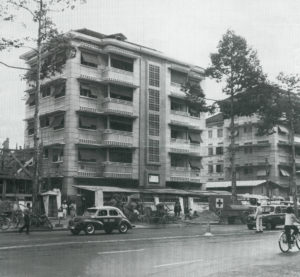
Our Navy ambulances and the city fire trucks had not arrived. People had been getting out of work for Christmas Eve, and there was traffic congestion. I looked around. The other nurses had joined me and spread out. The soldier returned and said the vehicles were leaving for the hospital. All the trucks were filled, but they would be back. I told him I was going with him because I needed to get to the hospital. I got in the jeep and assisted the patients in the back. The other nurses noticed and followed in other vehicles.
Our caravan had not gone far when the ambulances and fire truck passed us. Then there was a very loud explosion and a huge black cloud. What was that? I learned later several vehicles had exploded. The fire had reached the fuel tanks.
At the hospital, doctors and corpsmen were waiting and helped unload the patients. No one had needed to be called in. They had all reported. The nurses from the Brink joined the rest of the staff at the main hospital.
Nurses were busy moving some of the existing patients to make room for the new ones. Some patients were transferred to Army Headquarters, which had some beds; others were moved to the Army’s 8th Field Hospital in Nha Trang, about 200 miles north of Saigon.
I went into the building that had one large open area for an emergency room, triage, pre-op, operating room and recovery room. After I had been there a short time, a corpsman said: “I followed you because you are leaving a trail of blood on the floor. You are bleeding from somewhere.”
Upon arrival, I had put an ankle-length green gown over my street clothes. I was working on a patient and did not want to stop because I had sterile gloves on, so I stuck my leg out and asked the corpsman if he could see anything on my leg. I could not feel anything.
He moved the gown and told me I had a large laceration close to my knee, which would require sutures. I told the corpsman to use an Ace bandage to stop the bleeding. I would get sutures done later.
As the corpsman was on his knees, putting the bandage on, one of the doctors looked over and saw me.
“What are you trying to do, looking up the nurse’s gown?” he asked. “We don’t have time for this stuff!” There were more than a few laughs. The corpsman’s face turned bright red.
I told the doctor, “I have a laceration that needs to be sutured later, so he’s putting an Ace bandage on.” The doctor said, “That’s OK,” and everyone got back to work. The humor broke up a little of the stress.
We had a couple of interruptions during the night. First, someone came in and told us that the hospital was the next bombing target, which upped our anxiety. Next, Bob Hope visited some of the patients.
We worked until after 2 a.m., when all our patients had finally been transferred to the wards. It was my turn to have my leg sutured. I needed help to get on the table to have that done. Since the wound was right below my knee, the doctor wanted to put a cast on so I couldn’t bend my knee and tear the stitches. I talked him out of that and ended up with a thick white wrap from my thigh to my ankle for 10 days. I was also checked for my concussion.
When I was about through, another patient was put next to me. I asked, “Why are we getting another patient so late?”
The corpsman said: “They just found two people in the Brink. The floor in their quarters collapsed, and they fell to the ground floor. They were buried under walls and furniture. One was found deceased at the scene, but this patient was still alive.”
I asked the corpsman for the name of the patient, who was black from the fire. When I heard his name, I got off my table, went to him, took his hand, and said, “I’m Darby.”
The doctor just shook his head, indicating that the patient was not going to live. Then the man said, “Darby, don’t let me die.” He died right after that. His room at the Brink was next to mine. I had eaten breakfast with him many times because we were frequently on the same schedule. He had been like a big brother to me. If I had questions, I could ask him. That was my Christmas morning.
How did this happen? Two Viet Cong men in South Vietnamese army uniforms drove into the Brink officers’ quarters area and asked to park under the building with other vehicles. They were going down the street to do an errand and would return, they said. In the vehicle were 200 pounds of explosives set on a timer. The bombing injured many, including 68 Americans. Two people died. Among the wounded were four Navy nurses. The other three were Mason, Crumpton and Wooster.
Cmdr. Ann Richman, our senior nurse, asked us if we would like to return to the States. I said no, and the others followed. It was decided that the four of us, who had lost our rooms at the Brink, would temporarily use an apartment occupied by two doctors, who would remain at the hospital. Our more permanent homes would be decided later. We all took a set of OR scrubs so we could change clothes. I kept trying to take the glass out of my hair because it was getting in my scalp. The Navy car took us to the doctors’ apartment. We were tired but unable to sleep.
I was running on adrenaline and thought we should go back to the Brink to see if there was anything left in our quarters. I was curious since the room next to mine was gone. Initially the others had no interest, but I finally talked Crumpton into coming. We went downstairs and woke the driver of a hospital car that was there in case we needed to go back to the hospital to help or to receive further treatment for ourselves.
When we were close to our section of the city, there was a blackout. The bombing had shut the electric grid down, but the Brink had lights all around it. The Army had brought out generators and troops to guard the place. In OR greens, with no identification, Crumpton and I were stopped by security. I explained that we wanted to go to our rooms. Of course, the answer was no. Then a more senior military guard I knew came by, so I told him we wanted to take a pillowcase from our rooms and fill it with belongings. We only needed to go one flight up. He assigned a guard to each of us.
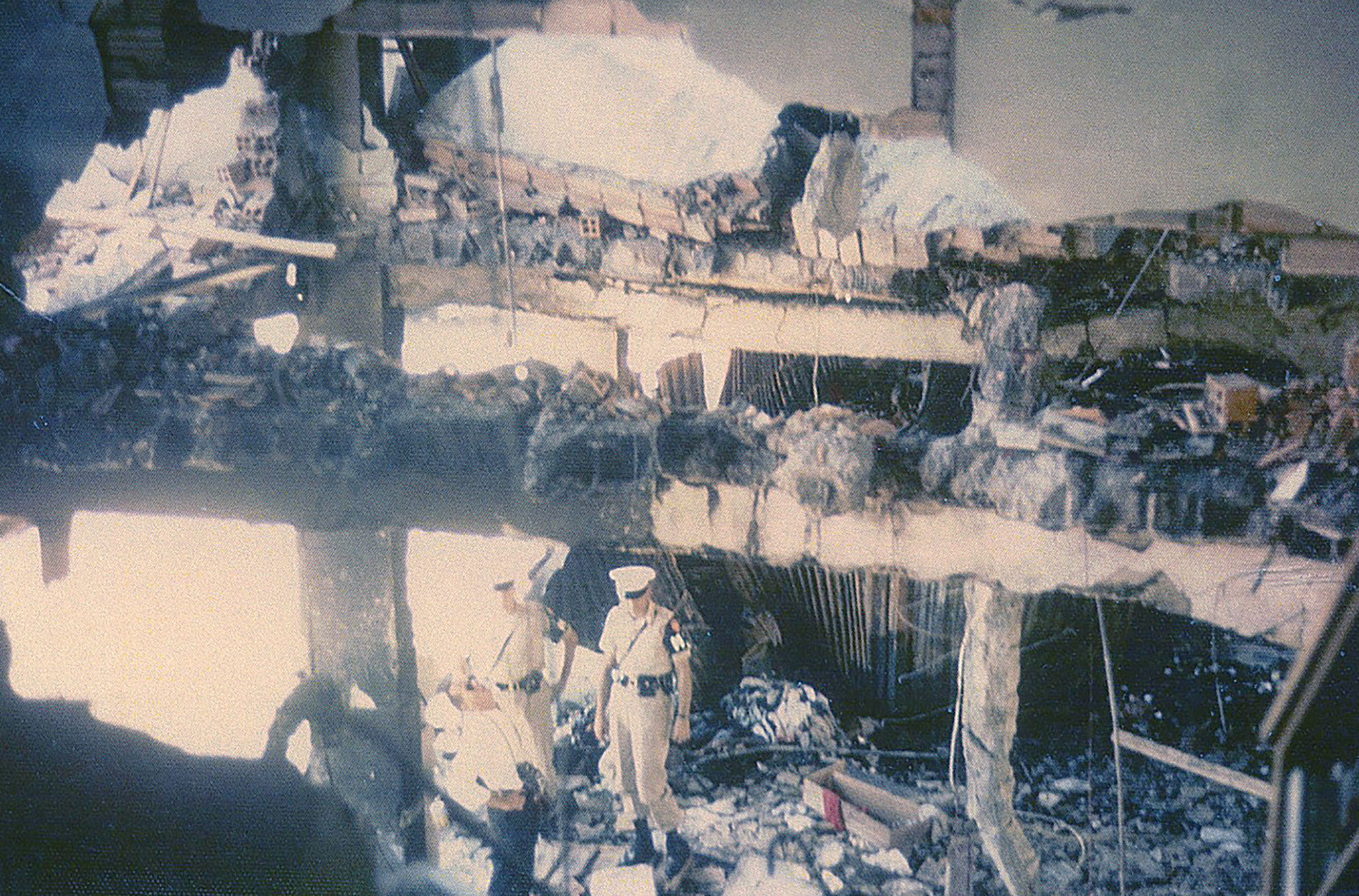
We went into the building and up the stairs. The smell of smoke and the quiet gave me a chill. I turned one way toward two rooms, and Crompton did the others. I checked the first room and filled the pillowcase with some essentials—clothes, money and IDs—and then started to my room. It was at the end of the hall, and I could hear Christmas music.
It gave me an eerie feeling. I asked the guard if he heard the music. He said he did. My room was a disaster, with the door half off and everything all over the place. I could not get in. The music was coming from in there. How? I remembered that I had put my little radio on when I came back from work. Armed Forces Radio was playing Christmas carols. My radio was buried somewhere in the room. The guard and I just stood there. The announcer came on and wished everyone in Vietnam a Merry Christmas.
Then the news: the Christmas Eve Bombing, how it happened. The newscaster announced the number injured, including four American nurses, and reported that two men were killed (in the room next to where we were standing).
The station returned to the Christmas program. “Silent Night” was the first carol. That did it. I had to leave quickly—all that destruction and the two deaths. I met Crumpton and went back to our driver, who returned us to the doctors’ apartment. We had a few hours’ rest.
Every Christmas when I hear “Silent Night,” my memories go to the bombing in 1964.
Around 10 a.m. Christmas morning, a Navy officer with a truck and a few Vietnamese men were sent to help move some of our belongings. We had 20 minutes. The Brink was being boarded up, and we were being moved to another building until it was repaired. I found my fatigues, all my uniforms, some jewelry, my radio (still playing Christmas music) and my camera. We had to leave big items.
There were five nurses in our new home: Walsh, Mason, Crumpton, Wooster and me. It was in a building that had not been completed and was occupied already with Army men. All of the nurses were working except for Crumpton, who went to Clark Air Force Base Hospital in the Philippines for surgery on her ears, injured during the explosion. I found a spot in the hospital where I could sit, keep my leg elevated and help with OR trays and sharpen some of the needles.
In early January, I remained slightly immobile because my leg was still wrapped, but I found a way to get around and was able to help on the first floor in the intensive care unit. Then I managed to climb a few stairs and, when the elevator was working, get to a few higher floors. The physician stated I was “returned to duty in view of need of nursing help in care of other casualties.”
One of the Army patients from the Brink asked me when the nurses were going to receive their Purple Hearts, awarded to service members wounded by the enemy. As far as I knew, we were not going to get them. We were nurses doing our jobs. The next day, another patient asked the same question, as did a third Army patient.
I got curious and asked Richman. “The Army thinks we deserve it,” I said. “Maybe because we are women.” The commander said she would check.
A couple of days went by. Then we were notified that the next day, Jan. 8, we would each receive a Purple Heart. We needed to be at Navy Headquarters for colors at 8 a.m.
The next day was my day off. I thought, “Will I go?” I didn’t need a ceremony. Crumpton was going to receive her Purple Heart in the Philippines.
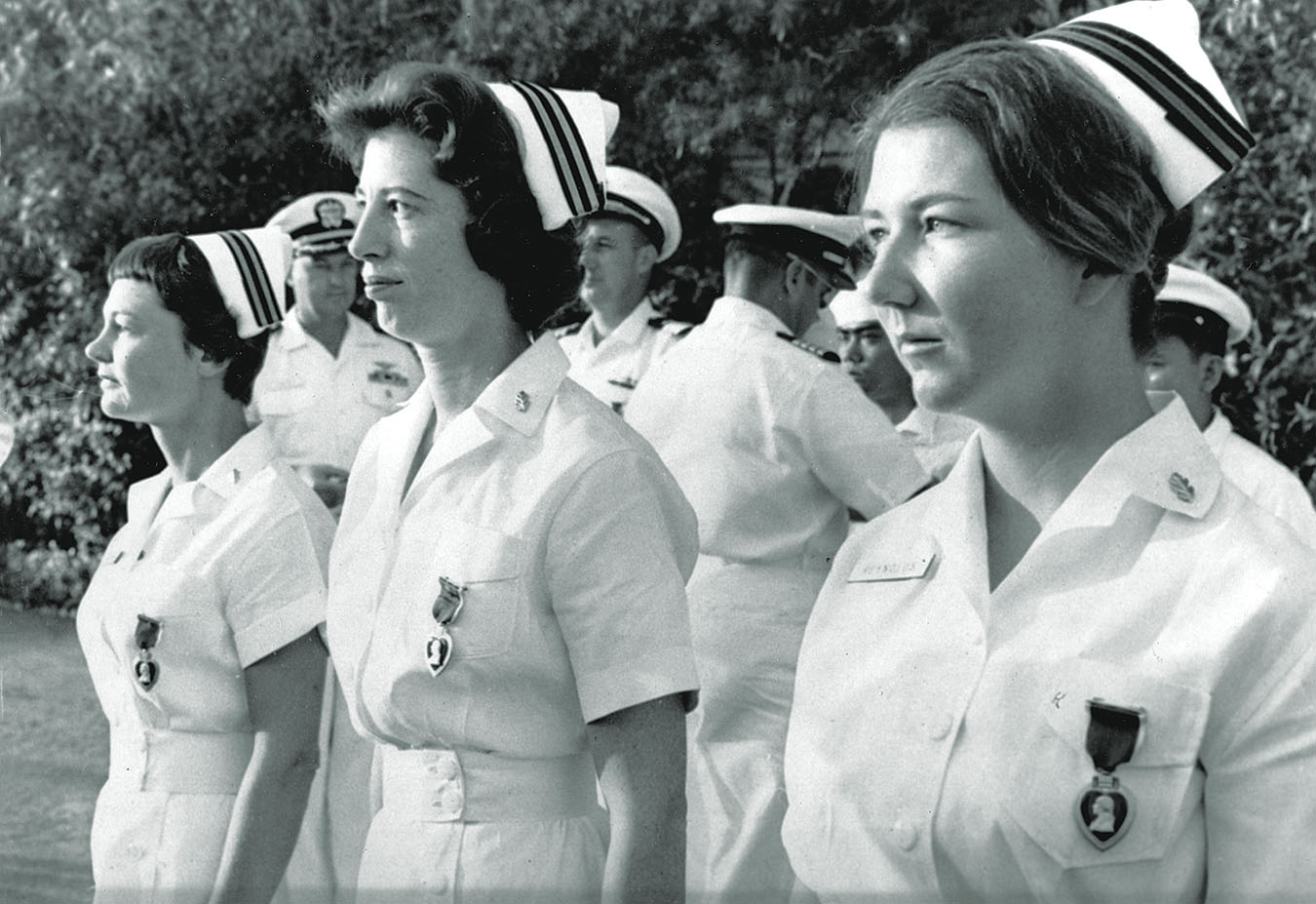
In the early morning, the hospital car took Mason, Wooster and me to Navy Headquarters for the Purple Heart presentations. I thought because I was a lieutenant junior grade and the others were full lieutenants, I would be the last in line, but instead I was the first to receive the Purple Heart from Capt. Archie Kuntze, commanding officer, Headquarters, Naval Support Activity, Vietnam.
Kuntze told the gathering that it was a “singular event in Vietnam,” adding, “Among you are three of the four nurses who were wounded in the Brink explosion.” He noted that Crumpton was at Clark Air Force Base Hospital for treatment of her wounds.
“These four,” Kuntze continued, “will be recorded by historians as the first women members of the United States Armed Forces to receive the Purple Heart in Vietnam. I should also like to make special note of the fact that although wounded in the Brink explosion these women disregarded their own wounds to care for the other casualties both at the scene and later at the station hospital. Their actions in this regard were beyond the call of duty and in keeping with the highest tradition of the United States Navy and the medical profession.” V
Reynolds left Vietnam in March 1965 and was assigned to Naval Hospital, Portsmouth, New Hampshire, then to Navy Nurse Recruiting Boston. She later served at Navy hospitals in California, Virginia and Florida. Reynolds finished her 26-year Navy career as director of Nursing Services at Naval Hospital, Camp Lejeune. She retired as a captain in 1988.
This post contains affiliate links. If you buy something through our site, we might earn a commission.
This article appeared in the October 2021 issue of Vietnam magazine. For more stories from Vietnam magazine, subscribe and visit us on Facebook:

